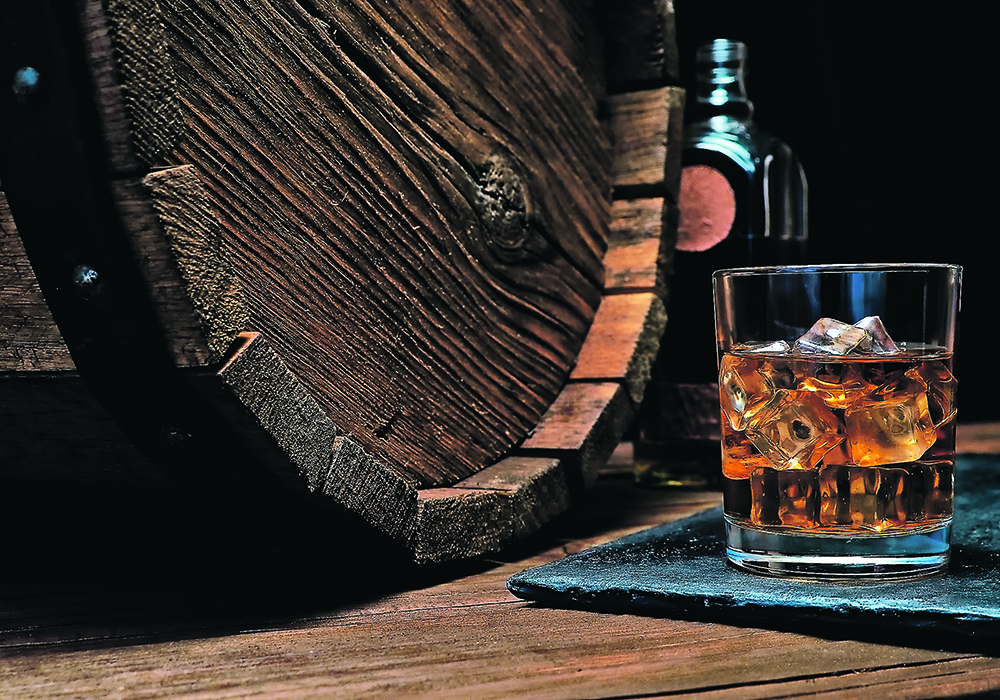Alta. firm determines beer flavour depends on where barley is grown, while Irish distiller proves the same with whiskey
Last year, farmers in Saskatchewan and Alberta grew about 6.7 million acres of barley.
Some of it was grown in the brown soil zone of southwestern Saskatchewan, some in dark brown soil and other barley was grown in the Rocky Mountain Foothills of Alberta.
Those differences, in soil type, rainfall and geography, likely make a difference when it comes to the taste of whiskey, says a study from Oregon State University.
That means terroir, a word commonly used in the wine industry, may also apply to whiskey. Terroir is how a region’s climate, soil and terrain affects the taste of wine.
Read Also

Pakistan reopens its doors to Canadian canola
Pakistan reopens its doors to Canadian canola after a three-year hiatus.
“Terroir is increasingly being used to differentiate and market agricultural products, most commonly wine,” said Dustin Herb, one of the authors of the study, published in the journal Foods.
Herb is a courtesy faculty member in the crop and soil science department at Oregon State and works full-time as a plant breeder at OreGro, a firm in Oregon.
“Understanding terroir is something that involves a lot of research, a lot of time and a lot of dedication. Our (work) shows that environmental conditions in which the barley is grown have a significant impact.”
Herb was part of a study conducted in Ireland and sponsored by Waterford Distillery, an Irish company.
Waterford wanted to know if terroir exists in whisky and recruited Herb to design the study because his doctoral research paper at Oregon State was on barley varieties and their influence on beer taste. Waterford has dubbed it the Whisky Terroir Project and says this study is the first to show that terroir applies to whisky.
Herb and his Irish colleagues grew two varieties of barley at two locations in Ireland — one near the coast and one inland. The crops were grown in 2017 and 2018, harvested, malted and distilled in the same way.
The scientists used technology, like gas chromatography, and the noses of six experts to understand the compounds in the barley that contributed to the aroma of the spirit.
They examined the flavours of a spirit, not actually whisky, because whisky must be stored in a wooden cask for at least three years.
They found that the growing environment had a greater impact on the aroma of the spirit than the variety. And, the spirit made with barley from the inland location had different flavours than the coastal barley.
“What this does is actually make the farmer and the producer come to the forefront of the product,” Herb said in an Oregon State release. “It might provide an opportunity for a smaller distiller … to capitalize on their terroir, like we see in the wine industry with a Napa Valley wine, or Willamette Valley wine or a French Bordeaux.”
Craft beer brewers in Oregon and Alberta have already been exploring the concept of barley terroir.
A few years ago, Pat Hayes, an Oregon State University barley breeder, grew two varieties of barley at two locations in the state. When the barley was malted and brewed into beer, the location of the barley field had an impact on the taste of beer.
“There is a statistically significant effect on flavour from the environment,” Hayes told the Alberta Farmer Express in 2018.
The owners of Troubled Monk, a craft brewery in Red Deer, Alta, held a similar experiment. They worked with growers in Daysland, Bashaw and Drumheller and brewed batches of beer with the barley from each Alberta farm.
The result? Terroir did make a difference.
“Where this barley is grown does affect the flavour of the beer,” Troubled Monk owner Charlie Bredo told the Alberta Farmer Express.
Herb and Waterford Distillery will continue their work on the Whisky Terroir Project
They will study long-term flavour changes associated with terroir as the spirits are stored in casks and officially become whiskey.
The team will also scale up the research to study commercial barley fields over a five-year period.
















